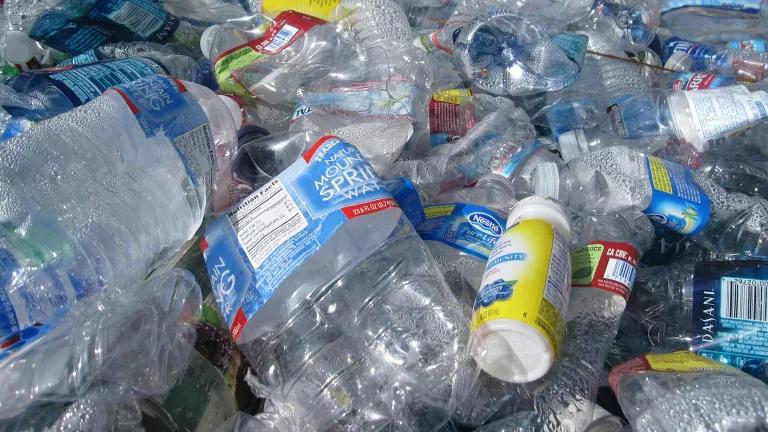Ten years ago this month, civil rights icon Julian Bond watched in sorrow and anger at the suffering and loss the people of New Orleans endured in the wake of Hurricane Katrina and a state, local and federal response that was wholly inadequate and largely inept.
The people who paid the highest price were predominantly black and poor: those in low-income communities like the Lower Ninth Ward; those who lacked cars to flee the oncoming storm; those who clung to rooftops, spent days in the blazing sun on a highway overpass or sought refuge in the horrific confines of the Superdome.
It was, Bond would later say, clear and undeniable proof that the racial injustice he devoted his life to opposing was alive and rearing its head once again. Hurricane Katrina was an environmental disaster compounded by policies and politics that left some of the most vulnerable of our people to fend for themselves when the going got especially tough.
"Those who say that 'race is history' have it exactly backward. History is race," Bond said a year later at the 2006 NAACP Convention in Washington, D.C. "And America is race - from its symbolism to its substance, from its founding by slaveholders to its rending by civil war, from Johnnie Reb to Jim Crow, from the Ku Klux Klan to Katrina."
Bond, who died August 15 at the age of 75, had a gift for connecting the dots between racial discrimination and inequity of all stripes. Just as he stood up to demand that African-Americans receive equal access to the ballot box, jobs, health care, decent housing and good schools; and much as he assailed racial profiling, police brutality and systemic poverty; he recognized the pernicious link between institutional and economic discrimination and environmental injustice.
Bond understood that these issues are inextricably intertwined in a society where those without influence, power or voice struggle to gain access to the levers of progress and change.
That's why, under his leadership, the NAACP has championed the cause of Climate Justice, worked alongside frontline communities in the wake of Katrina and insisted on clean air, safe water, economic development and increased availability of wind and solar power under an agenda the organization calls Energy Democracy.
In his 11 years as chairman of the board of the NAACP, the oldest civil rights organization in the country, and as chairman emeritus until his death, Bond recognized that, while we all pay a price for environmental degradation, some are bearing a greater burden. That was part of the larger problem Bond worked to fix.
He thought it was a problem that African-American children are twice as likely to be hospitalized for asthma and four times as likely to die from asthma as white children. He wanted to fix that, by protecting all children from air pollution like fine particles that come from diesel trucks and factories or ozone created when certain air pollutants combine in hot air.
He thought it was a problem that many inner-city African-Americans had an easier time buying a bag of french fries than a fresh potato. He wanted to fix that by providing healthier food choices for all our families.
He thought it was a problem that low-income communities on the front lines of climate change were more likely than more affluent Americans to be afflicted by rising seas, searing heat, prolonged drought, floods and hurricanes like Katrina. And he wanted to fix that, too, by cutting the dangerous carbon pollution that's driving climate change.
"Climate change is about Katrina, Rita and Ike devastating communities in Mississippi, Louisiana, Florida and Texas," the NAACP states on its website. "Climate change is about people in Detroit, Ohio, Pennsylvania and elsewhere who have died and are dying of exposure to toxins from coal fired power plants . . . It's about the fact that race - over class - is the number one indicator of toxic facilities in this country."
The African-American experience is unique. Bond understood that, by giving voice to the African-American struggle, he was expanding opportunity and promise for us all.
As a Korean-American woman who knew what it was like to feel the sting of discrimination growing up as a child and to suppress essential parts of my identity to assimilate into the majority, I am personally indebted to Julian Bond and his lifetime devotion to equality, decency and justice.
As a mother, I'm thankful for the progress he helped to usher in, that my young daughter and others like her will travel the arc of a very different journey in life.
As an American, I'm eternally grateful for the many ways this man of vision and mettle advanced the core values we share and imbued our founding ideals with modern meaning.
On a February day in 2013, Julian Bond was one of four dozen protesters arrested in front of the White House for peacefully demonstrating against the Keystone XL dirty tar sands pipeline, a project that would be disastrous for our climate and our heartland communities.
Just as he had stood up for justice all his life, he was determined to stand up then.
"The threat to our planet's climate is both grave and urgent," Bond said at the time. "I am proud today to stand before my fellow citizens and declare, 'I am willing to go to jail to stop this wrong.' The environmental crisis we face today demands nothing less."
We have lost a voice of clarity and power, one of the most eloquent of his generation. We have gained, though, a brighter future for our children, through all that he has helped us to achieve, the calling he leaves us to continue the fight and the example he set of how to prevail.



